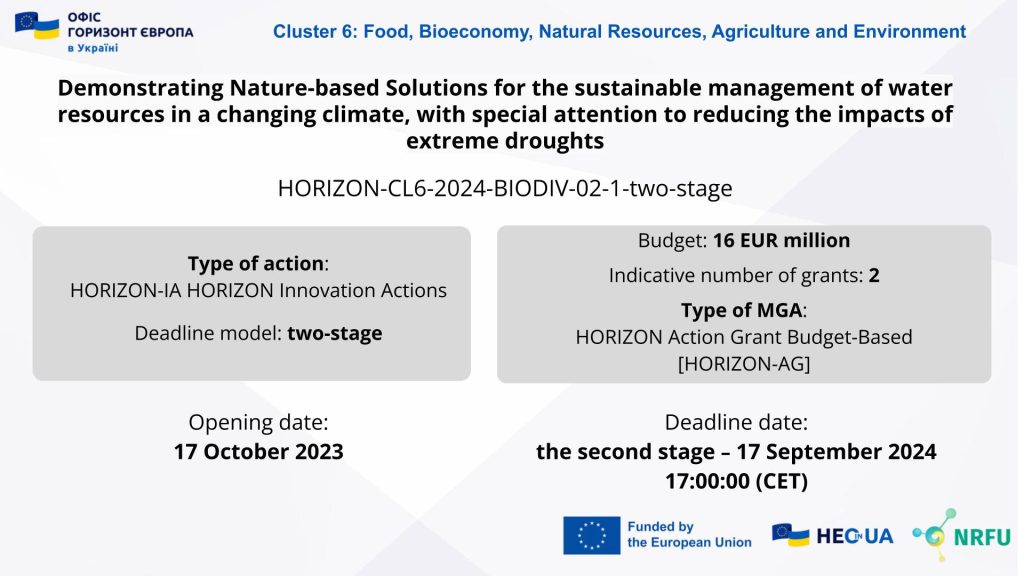Demonstrating Nature-based Solutions for the sustainable management of water resources in a changing climate, with special attention to reducing the impacts of extreme droughts (HORIZON-CL6-2024-BIODIV-02-1-two-stage)
Horizon Europe Office in Ukraine continues to inform that the second stage of calls in Cluster 6: Food, Bioeconomy, Natural Resources, Agriculture and Environment within Pillar II Global Challenges and European Industrial Competitiveness are available. Deadline for applications in the 2nd stage – September 17, 2024.
Demonstrating Nature-based Solutions for the sustainable management of water resources in a changing climate, with special attention to reducing the impacts of extreme droughts (HORIZON-CL6-2024-BIODIV-02-1-two-stage).
Expected Outcome:
In line with the European Green Deal priorities, notably the EU biodiversity strategy for 2030, as well as the EU climate adaptation strategy and the EU’s climate mitigation ambition for 2030 and 2050, the successful proposals will support the development of Nature-based Solutions (NBS) contributing to the sustainable management of water resources in a changing climate, with a special attention to reducing the impacts of extreme droughts.
Project results are expected to contribute to all of following expected outcomes:
- Cost-effective ways of implementing NBS at large scale for integrated water management are ready to use for relevant stakeholders and widely replicated;
- Consolidated evidence of the contribution of NBS to sustainable water management and of NBS’ cost and resource efficiency, notably concerning the reduction of impacts of droughts;
- Enhanced implementation of EU policies, notably for water management (Water Framework Directive, as well as the Floods Directive, when relevant), climate adaptation (Article 5 of the European Climate Law, EU strategy for climate change adaptation), the EU biodiversity strategy for 2030 and the EU soil strategy for 2030.
Due to the changing climate, many European regions are already facing more frequent, severe, and longer lasting droughts. Extreme droughts can have cascading effects; e.g., they reduce water levels in rivers and ground water, stunt tree and crop growth, increase pest attacks, favour the occurrence of sand drifts and storms and fuel wildfires. Moreover, impacts of extreme droughts accumulate over time across large areas, and the effect can linger for years. In areas with an intense demand for water supply, the impacts of droughts add up to the stress imposed to water systems by human activities.
